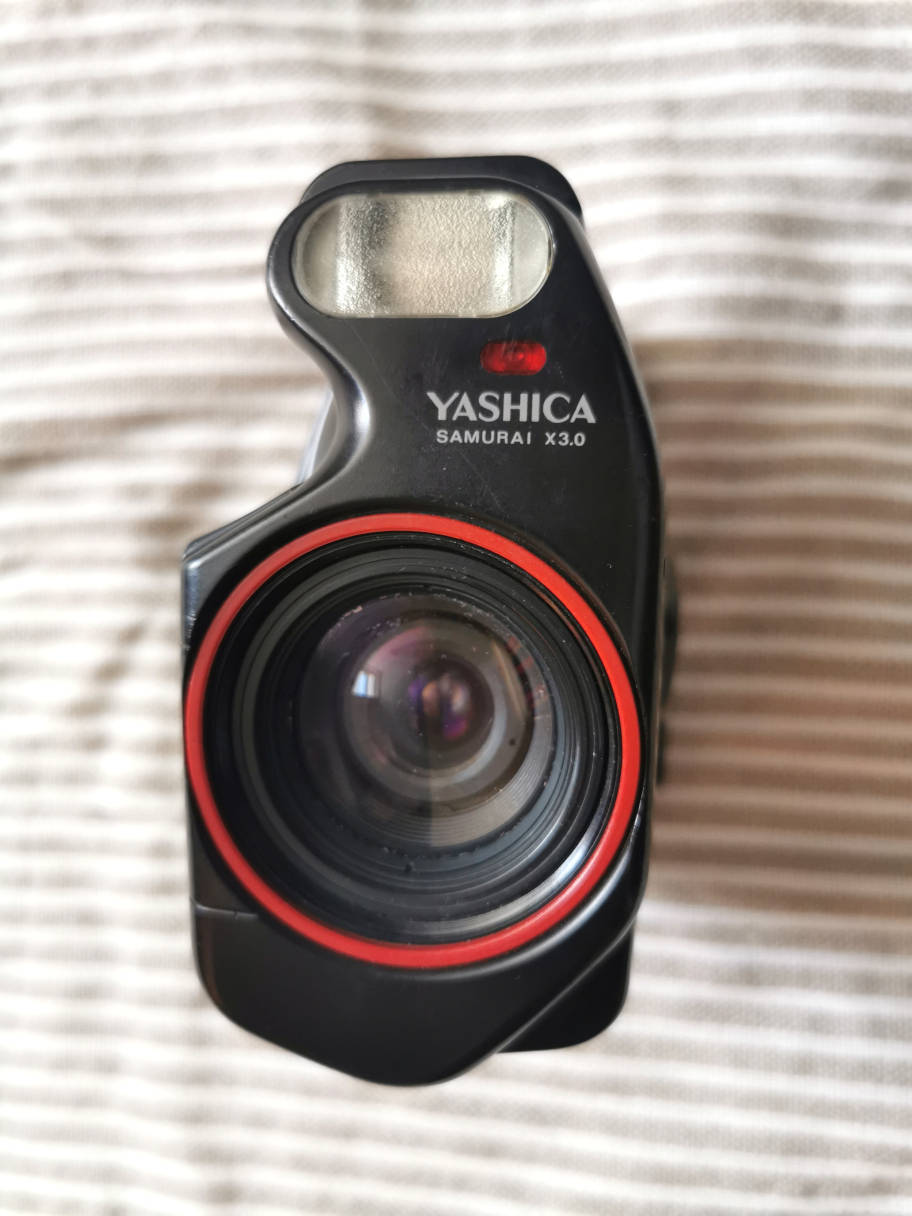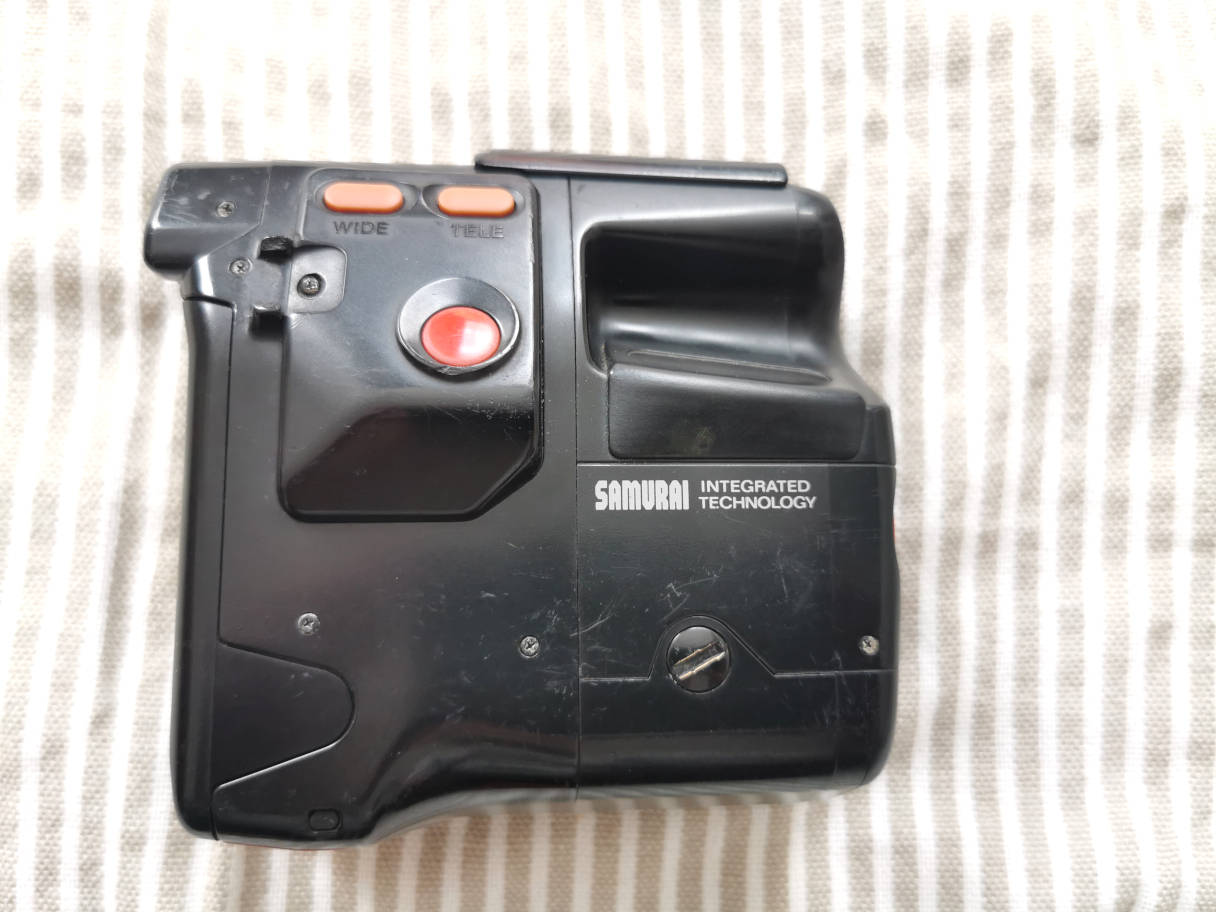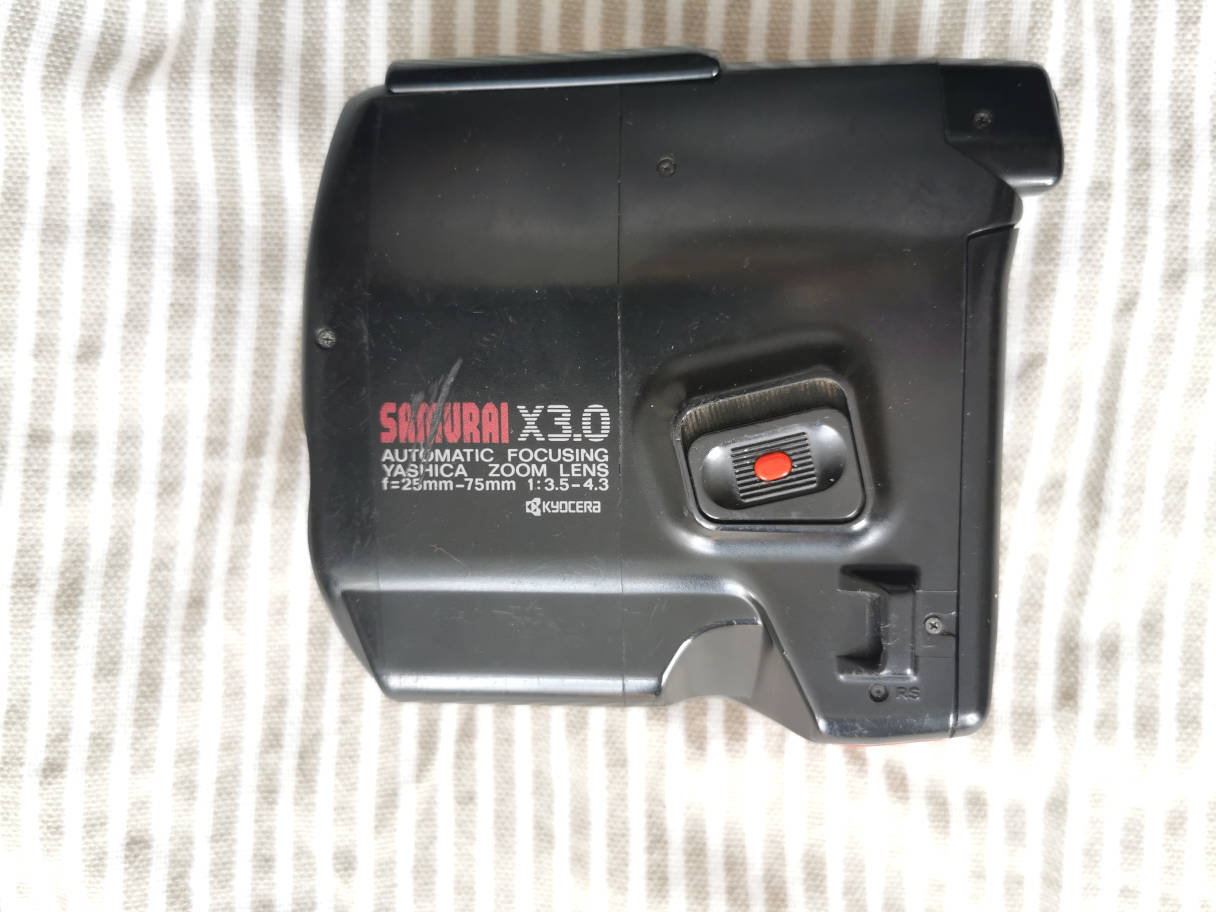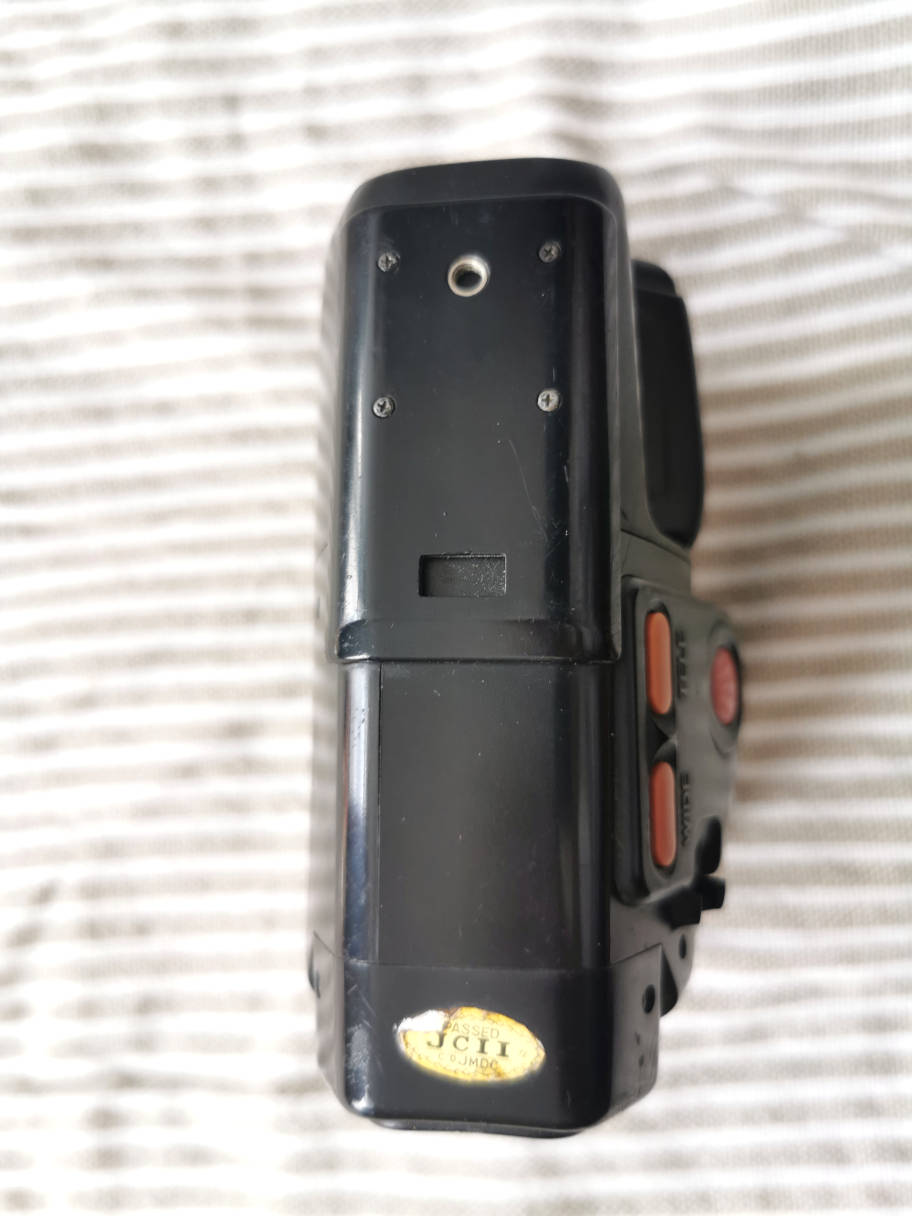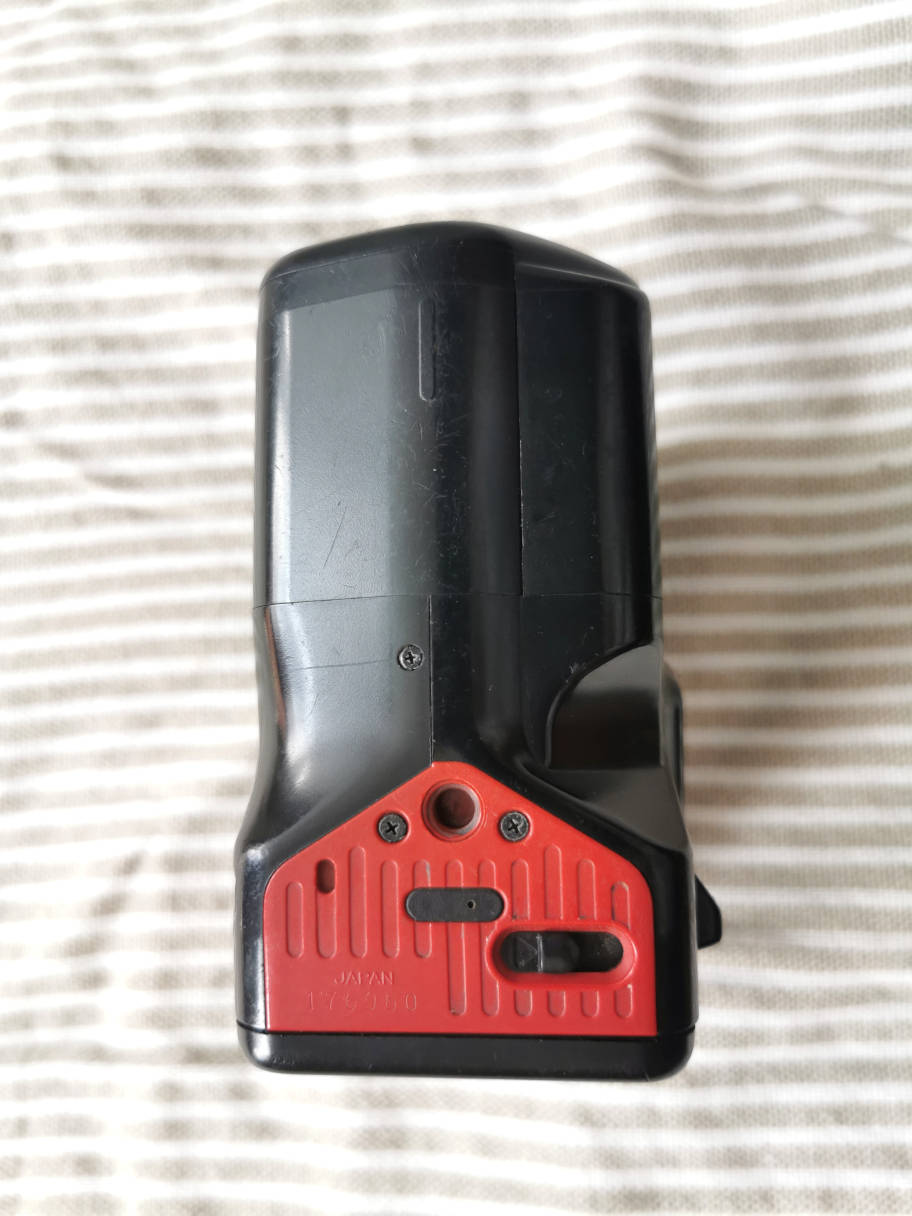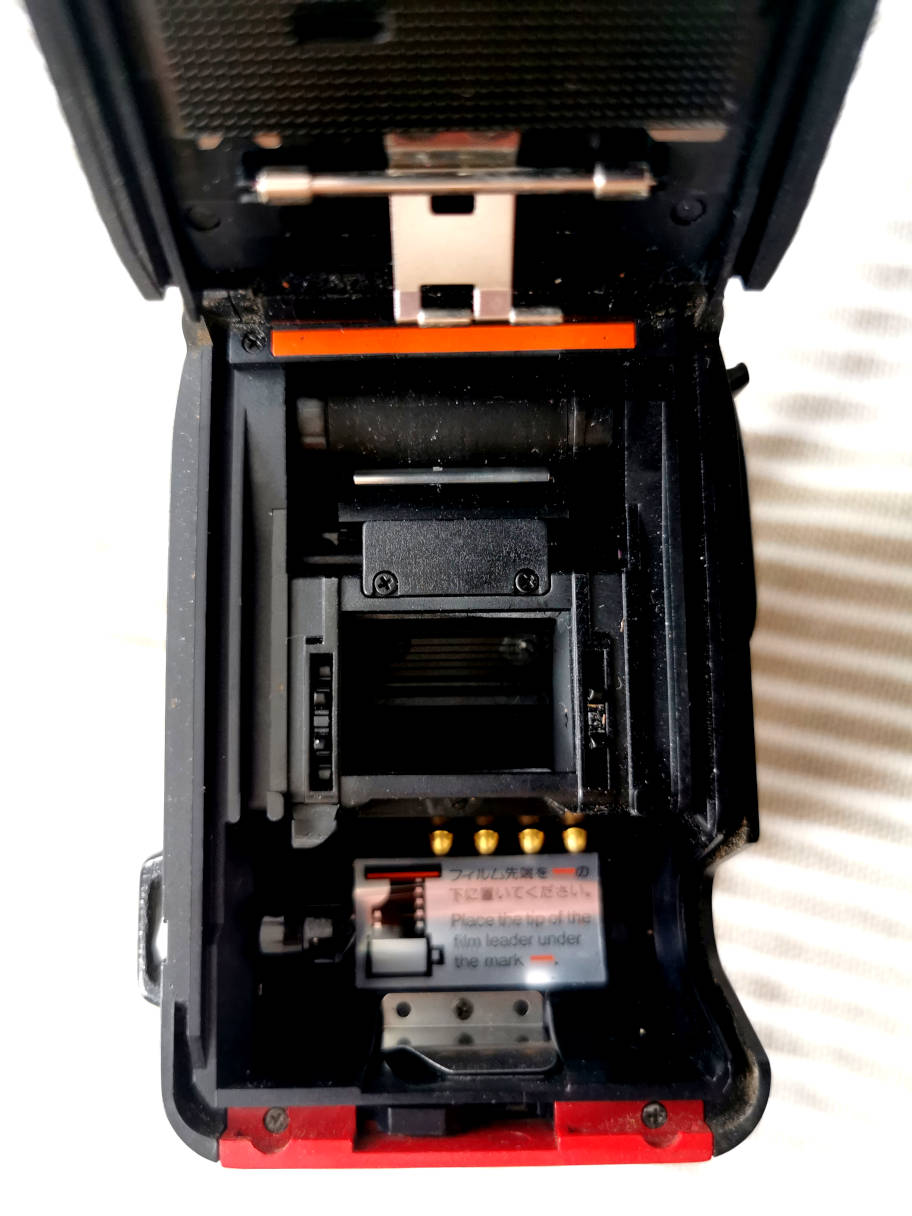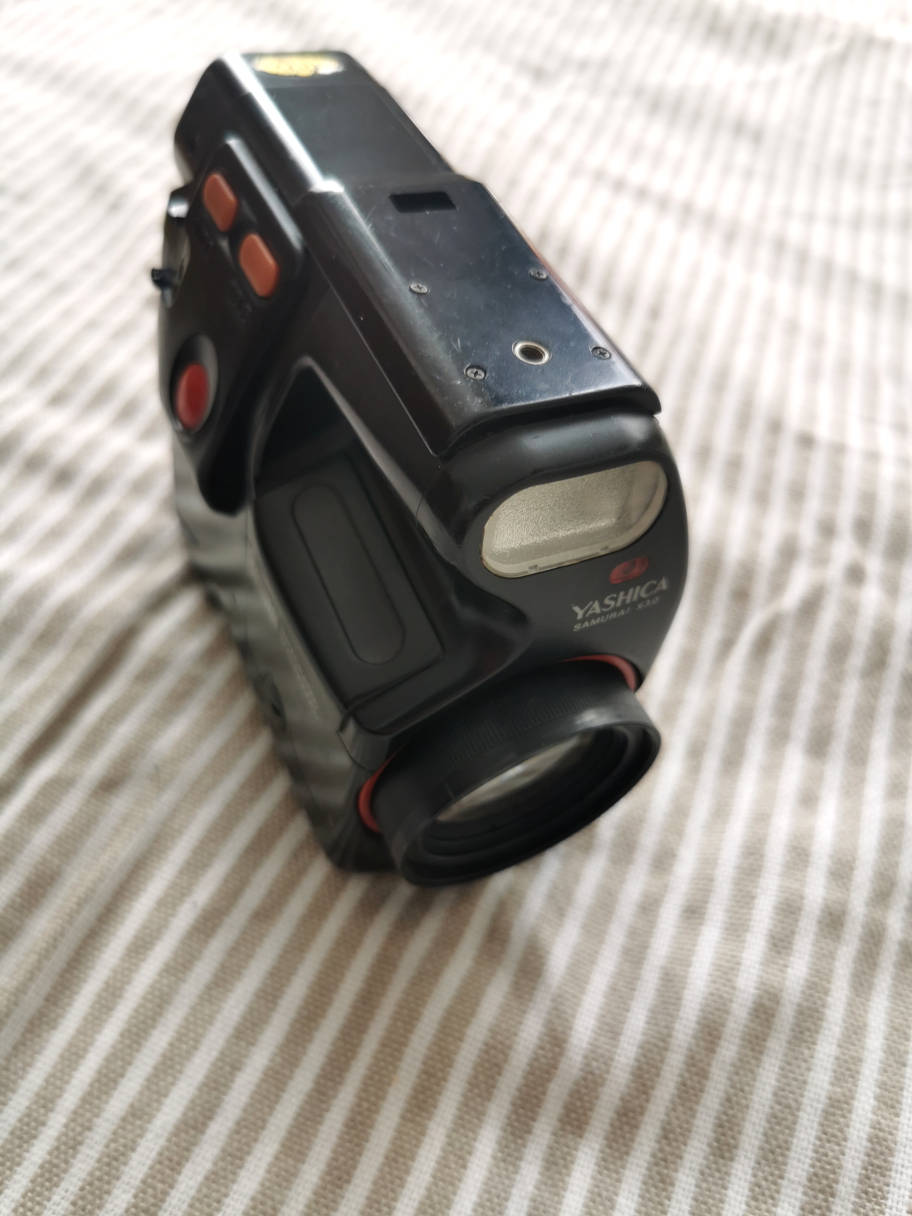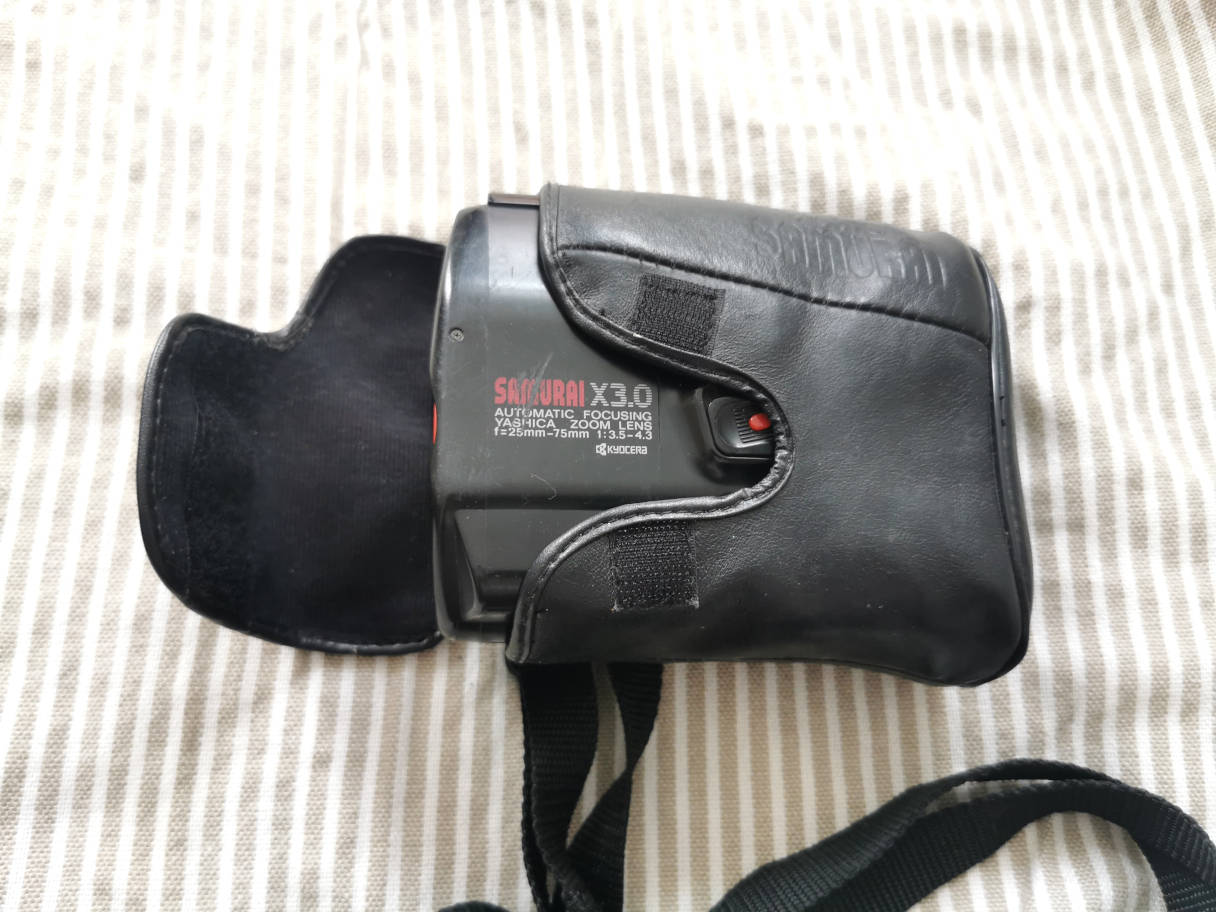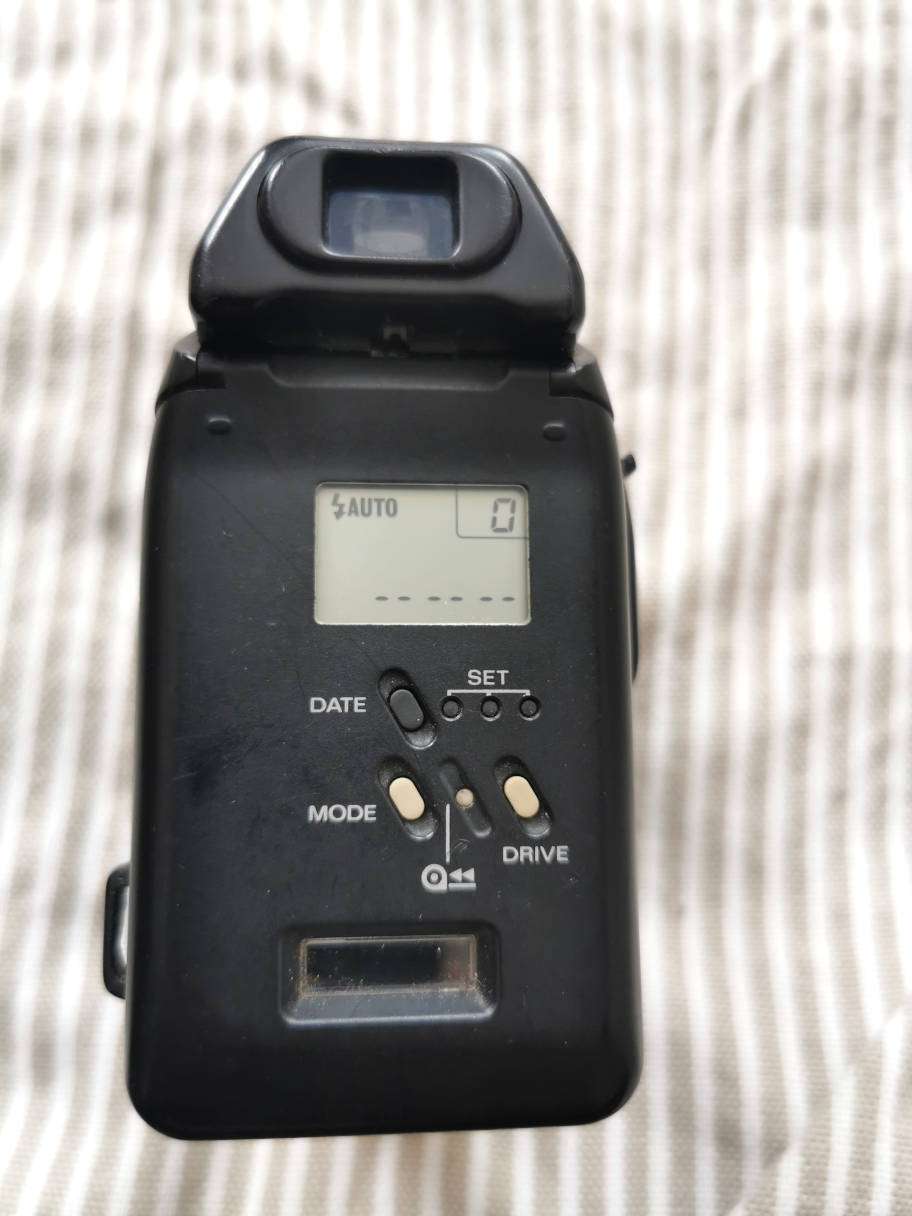
Back view. Finder with diopter adjustment. LCD sreen, no date imprint set. Date format choice and setting. Mode setting: Auto flash (default), night mode (no flash) and slow shutter sync. No flash off or on. Mid roll rewind. Drive modes: Single mode
| 135compact.com 35mm half format cameras (Kyocera) Yashica Samurai X 3.0 |
